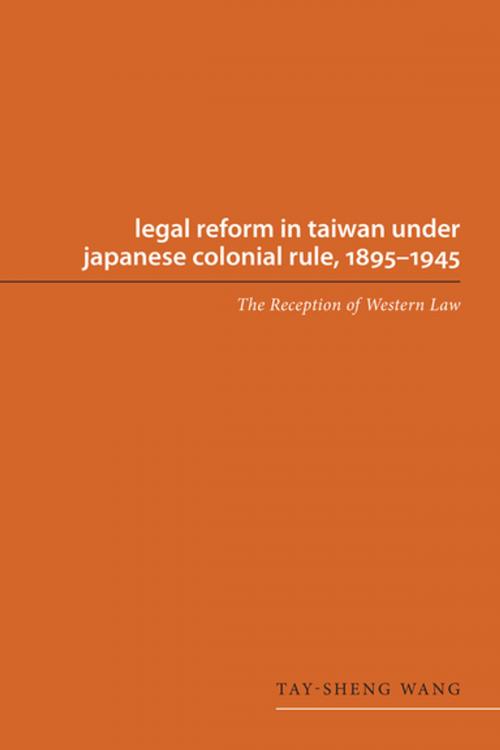Legal Reform in Taiwan under Japanese Colonial Rule, 1895-1945
The Reception of Western Law
Nonfiction, Reference & Language, Law, Legal History, History, Asian, Asia, Social & Cultural Studies, Social Science| Author: | Tay-sheng Wang | ISBN: | 9780295803883 |
| Publisher: | University of Washington Press | Publication: | April 28, 2015 |
| Imprint: | University of Washington Press | Language: | English |
| Author: | Tay-sheng Wang |
| ISBN: | 9780295803883 |
| Publisher: | University of Washington Press |
| Publication: | April 28, 2015 |
| Imprint: | University of Washington Press |
| Language: | English |
Taiwan�s modern legal system--quite different from those of both traditional China and the People�s Republic--has evolved since the advent of Japanese rule in 1895. Japan has gradually adopted Western law during the 19th-century and when it occupied Taiwan--a frontier society composed of Han Chinese settlers--its codes were instituted for the purpose of rapidly assimilating the Taiwanese people into Japanese society.
Tay-sheng Wang�s comprehensive study lays a solid foundation for future analyses of Taiwanese law. It documents how Western traditions influenced the formation of Taiwan�s modern legal structure through the conduit of Japanese colonial rule and demonstrates the extent to which legal concepts diverged from the Chinese legal tradition and moved toward Western law.
Taiwan�s modern legal system--quite different from those of both traditional China and the People�s Republic--has evolved since the advent of Japanese rule in 1895. Japan has gradually adopted Western law during the 19th-century and when it occupied Taiwan--a frontier society composed of Han Chinese settlers--its codes were instituted for the purpose of rapidly assimilating the Taiwanese people into Japanese society.
Tay-sheng Wang�s comprehensive study lays a solid foundation for future analyses of Taiwanese law. It documents how Western traditions influenced the formation of Taiwan�s modern legal structure through the conduit of Japanese colonial rule and demonstrates the extent to which legal concepts diverged from the Chinese legal tradition and moved toward Western law.















